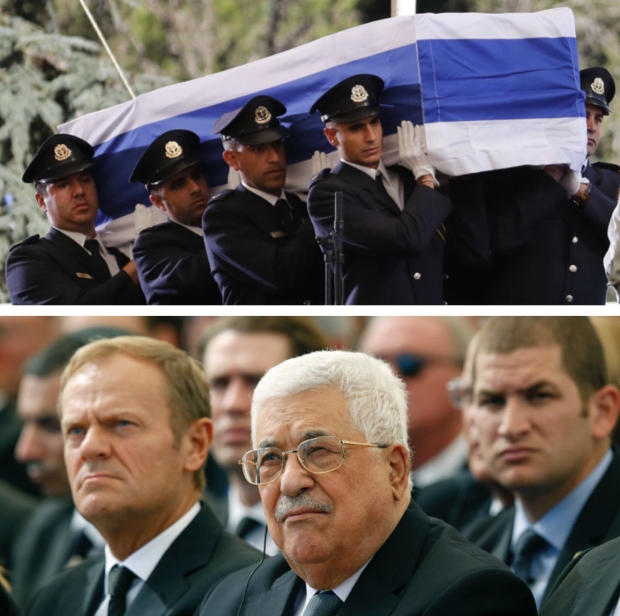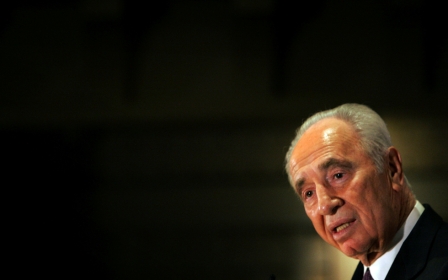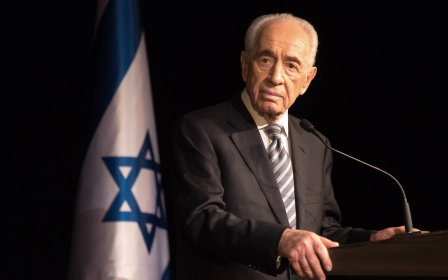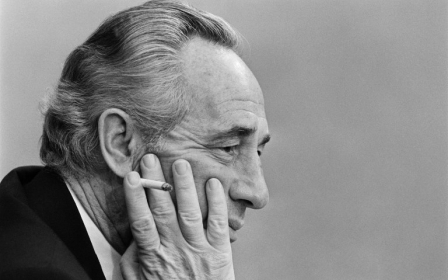Obama compares Peres to Mandela at Jerusalem funeral
World leaders attended the funeral of ex-Israeli leader Shimon Peres in Jerusalem on Friday, with US President Barack Obama calling him a giant of the 20th century.
Palestinian President Mahmoud Abbas was among the mourners at the city's Mount Herzl national cemetery and was seated in the front row, reportedly at the request of Peres's family.
In a rare move, he shook hands and spoke briefly with the Israeli prime minister, Benjamin Netanyahu, upon arrival.
Some 70 countries were represented at the funeral.
"In many ways he reminded me of some other giants of the 20th century that I had the honour to meet: men like Nelson Mandela, women like Her Majesty Queen Elizabeth," said Obama, who wore a black Jewish skullcap.
Bill Clinton, the former US president, was also in attendance.
Netanyahu, in his eulogy, called Peres a "great man of the world".
The two men had been political rivals, and Netanyahu recalled a late-night discussion on Israel's future with Peres in which they discussed security and peace.
Obama, who has had a testy personal relationship with Netanyahu, however made a point of mentioning Abbas at the start of his eulogy and said his "presence here is a gesture and a reminder of the unfinished business of peace."
Peres died on Wednesday aged of 93.
The funeral took place under a white canopy in the leafy national cemetery, where many Israeli dignitaries are buried.
About 8,000 police were deployed for the commemorations. Preventative arrests of both Jews and Palestinians were made ahead of the funeral to avoid potential disruptions, police said.
The last time such an event was held in Israel was the 1995 funeral of Yitzhak Rabin, Peres's rival in the Labour party but partner in negotiating the Oslo accords.
In a career spanning seven decades, Peres held nearly every major office, serving twice as prime minister and as president, a mainly ceremonial role, from 2007 to 2014.
He won the 1994 Nobel Peace Prize jointly with Rabin and Palestinian leader Yasser Arafat for his role in negotiating the Oslo accords, which envisioned an independent Palestinian state.
He was also an architect of Israel's nuclear programme, with the country now considered the Middle East's sole nuclear-armed nation, though it has never declared it.
While Peres is hailed in the West as a peacemaker, many in the Arab world, including among the Palestinians, regard him as a "war criminal".
They have cited his involvement in successive Arab-Israeli wars, the occupation of Palestinian territory and his support for settlement building before his work on Oslo.
He was also prime minister in 1996 when more than 100 civilians were killed while sheltering at a UN peacekeepers' base in the Lebanese village of Qana when it was fired upon by Israel.
Islamist movement Hamas, which runs the Gaza Strip, condemned Abbas for offering condolences to Peres's family, saying it "disregards the blood of the martyrs and the suffering of the Palestinian people".
Abbas, who signed the Oslo accords along with Peres, however called him a "brave" partner for peace.
There have been very few tributes from Arab nations, though Egypt was represented by its foreign minister, Sameh Shoukry, and Jordan too sent a minister.
New MEE newsletter: Jerusalem Dispatch
Sign up to get the latest insights and analysis on Israel-Palestine, alongside Turkey Unpacked and other MEE newsletters
Middle East Eye delivers independent and unrivalled coverage and analysis of the Middle East, North Africa and beyond. To learn more about republishing this content and the associated fees, please fill out this form. More about MEE can be found here.





